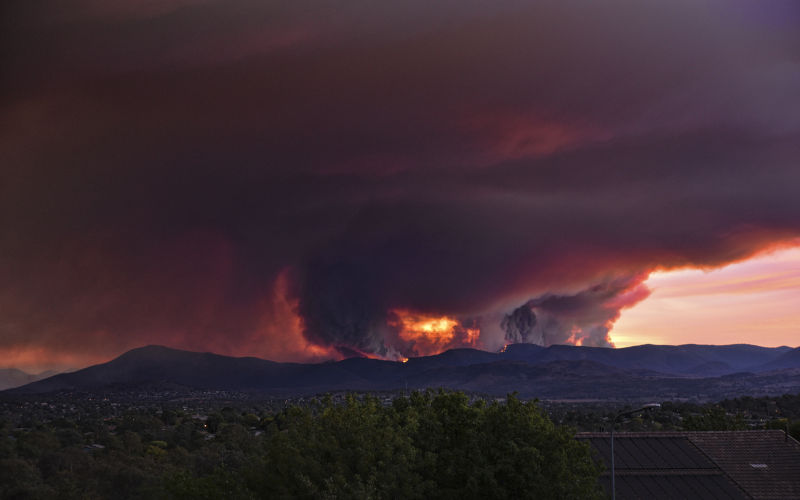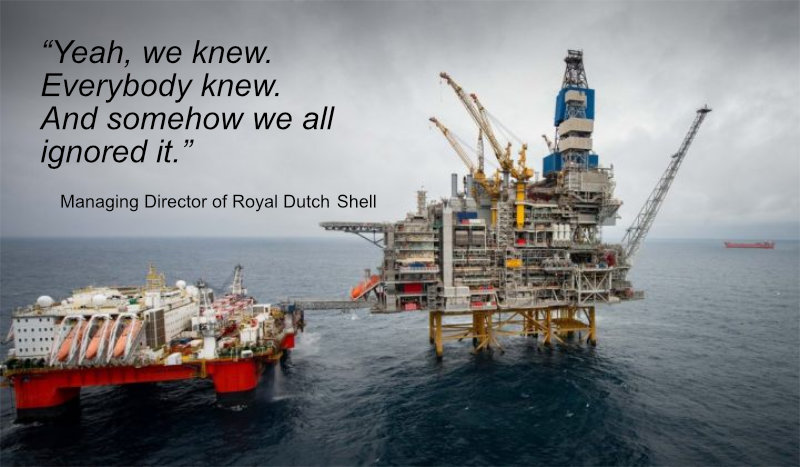David's recent articles

9 February 2026
Authoritarianism is undermining climate action – and time is running out
The global rise of authoritarianism is weakening climate governance just as warming accelerates and tipping points draw near. This failure now poses a direct threat to our future.

18 December 2025
Climate hot takes for 2025
Scientific evidence in 2025 showed global warming accelerating faster than expected, while emissions continued to rise and climate policy lagged dangerously behind physical reality.

4 November 2025
A tribute to Ali Kazak
I had the privilege, together with the late Frans Timmerman, of working with Ali a good deal from the mid-1970s till the mid-1990s in producing the newspaper/magazine Free Palestine, and as national secretary of the Palestine Human Rights Campaign for a decade.

12 October 2025
Australia’s climate assessment fails on sea-level rise risks and vulnerable communities
Australia’s first climate risk assessment has the stated purpose of guiding adaptation responses to protect people and property in a heating climate, but what happens if the reality is worse than some low-ball projections of future risks?

19 August 2025
Australia’s first National Climate Risk Assessment has been a long time coming
The Australian Government’s soon-to-be-released first National Climate Risk Assessment (NCRA), which will be focused on domestic climate risks, has received some recent media coverage here and here. Here is the story on the long evolution of the NCRA and what to expect.

2 August 2025
New National Climate Risk Assessment – more omission than commission?
The Albanese Government will soon deliver Australia’s first domestically-oriented National Climate Risk Assessment, which was due in December 2024.

25 June 2025
Faster than forecast, accelerated warming creates a climate time-bomb for the Albanese government
The physical reality of accelerating climate heating and faster-than-forecast impacts have mugged climate policymaking, which now needs to be rebuilt with up-to-date scientific observations and understandings, and a risk-management approach that gives particular attention to the most-damaging, plausible high-end scenarios.

6 June 2025
Ali Kazak and the transformation of the politics of Palestine in Australia
It was with great sadness that we learned of the passing on 17 May of Ali Kazak, at the age of 78. Over five decades, Ali dedicated his enormous energy to building understanding and support for Palestine, the land of his birth.

29 April 2025
2025 is the crunch year in the scientific contest about accelerated warming
The record-breaking warming years of 2023 (1.5°C) and 2024 (1.6°C) were above expectations and shocked scientists.

18 March 2025
Government refuses to articulate 'frankly terrifying' security risks
The Albanese Government has jammed itself by trying to not talk about the greatest threat to Australia’s future, but has now opened itself to the charge of playing politics with security issues.

15 January 2025
Climate and security risks? Shhh, says the Albanese Government
The Los Angeles fires have again demonstrated the need for a steely-eyed approach by governments to climate risks, ensuring that the assessment of those risks is up-to-date, considers the plausible worst-case scenarios, and is made widely available so the public understands what we are facing.

31 December 2024
A year of scientific shock and awe
In 2024, faster than forecast change taught us new lessons about the climate system. In 2025, worse is to come, as political shock troops steer a course towards climate-driven societal collapse, writes David Spratt.

3 December 2024
Climate policy is on a collision course with physical reality
There is a chasm in outlook between the global climate policy-making elite with their focus on distant goals, market solutions and non-disruptive change, and activists and key researchers who see the world hurtling towards climate breakdown and social collapse.

12 November 2024
America first, Earth last: Australia’s security now needs a climate focus
There’s a new, stark reality we must face: Donald Trump's victory will push the Earth system further down a perilous path towards three degrees Celsius of global warming or more, with catastrophic consequences for human civilisation and the environment.

9 October 2024
Entering an age of social and security consequences
“I will not sacrifice Great British industry to the drum-banging, finger-wagging Net Zero extremists,” was the headline The Sun in London gave to a piece last week by Prime Minister Sir Keir Starmer, defending the expenditure of 22 billion pounds on the cargo cult of carbon capture and storage. This headline captured the delusion at the core of climate-policymaking around the world: that there is an economically non-disruptive path out of the climate emergency. There isn’t.

25 July 2024
The Albanese government has created a climate vacuum, and we will pay the price
Whilst the global impact of climate disruption is rapidly accelerating, and the last, record-breaking year has been extraordinary, public concern in Australia about it is waning, and the government bears much of the responsibility.

14 February 2024
Shock as warming accelerates, 1.5°C is breached faster than forecast
If there was shock and awe last week when the Copernicus Climate Change Service announced that global average warming over the last twelve months — February 2023 to January 2024 — had exceeded 1.5 degrees Celsius (°C), it was likely because too many people had succumbed to the predominant but delusional policy-making narrative that holding warming to 1.5–2°C was still on the cards.

26 January 2024
Towards an unliveable planet: Climate’s 2023 annus horribilis
The heat and extreme climate records of 2023 shocked scientists. So where are we heading? Given current trends, the world will zoom past 2°C of warming and the Paris climate goal of limiting warming to 1.5-2°C.

25 January 2024
Humanity’s new era of “global boiling”: Climate’s 2023 annus horribilis
For climate change, 2023 was an “unprecedented” year, “absolutely gobsmackingly bananas” and “scary” and “frightening”. And that was what climate scientists said! The UN Secretary General called it the year in which humanity crossed into a new climate era — an age of “global boiling”.

19 December 2023
COP28 a “tragedy for the planet” as Stockholm Syndrome took hold
Up to 100,000 people — most of whom derive their professional status and income from climate-related politics, advocacy and business — flew into Dubai for the COP28 annual global climate policy-making event, the Conference of the Parties under the United Nations’ climate convention. And the result?

6 December 2023
The Paris Agreement is dead. Australia must change its strategic priorities
As COP28 flounders, the Paris Agreement is dead, and the imperative for emergency action has never been greater. This demands a fundamental change to Australia’s strategic priorities.

23 November 2023
COP-out: Why the petrostate-hosted climate talkfest will fail
After a succession of record-breaking months of record heat including 1.8°C in September, global warming for 2023 as a whole will likely tip 1.5°C, with 2024 even hotter as the effect of the building El Nino is felt more fully. Already hundreds of thousands have died and millions displaced, primarily in countries least responsible for climate change. The annual economic cost globally is in the hundreds of billions.

27 September 2023
Did Penny Wong really just suggest China is an ‘existential’ threat?
The Australian Government has a big problem with its security narrative. Preparing for a putative war with China is the nation’s top security priority, while the government’s knowledge of the growing existential threat of climate disruption and their security consequences remains a closely-guarded secret.

29 August 2023
Fatal mistake: Intergenerational report misleads on climate risks
The Australian Government’s public analysis of climate risk, our greatest threat, is dangerously misleading. The Intergenerational Report 2023 (IGR) is a prime example. By dumbing down the implications of climate change with simplified economic models, the IGR and similar reports are institutionalising the global failure to face climate reality.

7 August 2023
Are we failing to see the wood for the trees on climate risks?
Extreme climate impacts are exploding in this year’s Northern Hemisphere summer. We urgently need to understand how climate disruption will affect Australians: their safety and well-being in the face of ever-more-extreme climate events, the viability of public and private infrastructure, communications and logistical systems, challenges to food security, and much more.

4 May 2023
Are Australia’s climate–security risks too hot to handle?
The Australian government is keen to talk about defence, big submarines, China and national security. And renewable energy, big batteries, electric cars and big hydrogen. But put the two together — security and climate — and an odd thing happens.

30 March 2023
IPCC: a gamble on earth system failure
The fact that the IPCC incorporates in its core business risks of failure to the Earth system and to human civilisation that we would not accept in our own lives raises fundamental questions about the efficacy of the whole IPCC project. If low risks of failure are taken as a starting point, “net zero 2050” becomes not a soundly based policy aim, but an appalling gamble with existential risk.

20 May 2022
The Dominoes are falling fast. We face a climate emergency
The belated release of the Great Barrier Reef Marine Park Authority’s “Reef snapshot: summer 2021-22” has exposed the Federal government’s insistence that the Great Barrier Reef (GBR) is not endangered as the lie it has always been.
17 August 2021
Climate Change: will the financial system survive?
One of the few bright spots in an otherwise dismal global response to the escalating climate crisis has been the preparedness of financial market regulators to force their regulated institutions to face up to the implications of climate risk.

8 August 2021
The net zero emission illusion
With Covid, the government has shown itself manifestly incapable of leading or managing its core responsibilities, beset by corruption and secrecy. The climate challenge is far greater than Covid, and there are no vaccinations or quarantine against climate impacts, which from now on will increase inexorably in the absence of decisive leadership.
5 November 2020
Net-zero emissions by 2050: leadership or climate colonialism? (Canberra Times Nov 2, 2020)
How fast does Australia need to reduce greenhouse emissions to play its fair part in responding to the global climate emergency?
13 October 2020
What must climate and energy policy really achieve?
The Australian Government is dangerously out-of-touch as climate change accelerates and a cascade of tipping points risks unstoppable global warming.
28 September 2020
When climate risks are so high, short term actions matter most
Many carbon budgets are based on an under-estimation of warming to date, and the path of future warming. And all such budgets either ignore, or underplay, the loss of carbon from long-term stores — such as the melting of permafrost — which are already active processes.
13 July 2020
As warming approaches 1.5°C, a carbon budget for the Paris targets is delusional
There's a lot of talk about how much carbon budget (new emissions) are allowable to keep global heating to the Paris target of 1.5°C. The reality is that over the last year, global average warming was already close to 1.5°C, based on a true, pre-industrial baseline.
